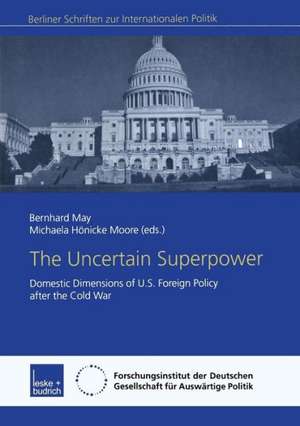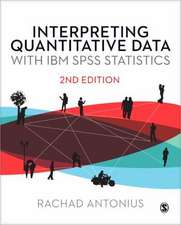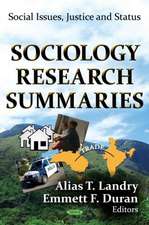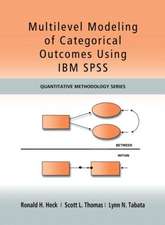The Uncertain Superpower: Domestic Dimensions of U.S. Foreign Policy after the Cold War: Berliner Schriften zur Internationalen Politik
Editat de Bernhard May, Michaela Hoenicke Mooreen Limba Engleză Paperback – 28 feb 2003
Preț: 381.59 lei
Nou
Puncte Express: 572
Preț estimativ în valută:
73.03€ • 75.96$ • 60.29£
73.03€ • 75.96$ • 60.29£
Carte tipărită la comandă
Livrare economică 15-29 aprilie
Preluare comenzi: 021 569.72.76
Specificații
ISBN-13: 9783810034373
ISBN-10: 3810034371
Pagini: 216
Ilustrații: 212 p. 3 illus.
Greutate: 0.26 kg
Ediția:2003
Editura: VS Verlag für Sozialwissenschaften
Colecția VS Verlag für Sozialwissenschaften
Seria Berliner Schriften zur Internationalen Politik
Locul publicării:Wiesbaden, Germany
ISBN-10: 3810034371
Pagini: 216
Ilustrații: 212 p. 3 illus.
Greutate: 0.26 kg
Ediția:2003
Editura: VS Verlag für Sozialwissenschaften
Colecția VS Verlag für Sozialwissenschaften
Seria Berliner Schriften zur Internationalen Politik
Locul publicării:Wiesbaden, Germany
Public țintă
ResearchCuprins
Introduction: The Uncertain Superpower after ‘September 11’.- I Constitutional and Institutional Dimensions: Executive, Legislative, Public Opinion and the Media.- Constitutional and Institutional Dimensions: White House-Congress Relations After the End of the ‘Imperial Presidency’.- Divided Government: The Democratic Dilemma of Making U.S. Foreign Policy.- Apathy, Interest, and the Politics of American Foreign Policy.- Domestic Sources of US Foreign Policy.- II U.S. Leadership and the Reform of Western Security Institutions.- “U.S. Leadership and the Reform of Western Security Institutions: NATO Enlargement and ESDP”.- Recasting the Atlantic Bargain.- U.S. Leadership and the Reform of Western Security Institutions: NATO-Enlargement and ESDP.- III U.S. Leadership in Crisis: The Balkans, Russia and China.- ‘With One Hand Tied Behind Our Back’: Collective Memory, The Media And US Intervention From The Gulf War To Afghanistan.- U.S. Policy Toward The Balkans: The Role Of Domestic Factors And Lessons Learned.- U.S. Leadership and Domestic Factors in Dealing with Russia During the Clinton Administration.- Congressional Politics and U.S. China Policy 1996–2000.- IV U.S. Leadership in International Institutions and Multilateral Regime-Building.- False Choices: Unilateralism, Multilateralism, and U.S. Foreign Policy.- The Lack of U.S. Leadership in Climate Change Diplomacy.- Selected Reading List.
Notă biografică
Dr. Bernhard May, deputy director of the research institute and head of the USA/Transatlantic Relations program at the German Council on Foreign Relations (DGAP), Berlin; Dr. Michaela Hönicke-Moore, DAAD Visiting Assistant Professor, Department of History, The University of North Carolina, Chapel Hill, NC, USA.
Textul de pe ultima copertă
The book investigates US foreign policy in today's process of transformation. It shows how domestic factors determine more and more the superpower's paradigm of foreign policy. On the one hand, the US are the undisputed superpower as far as military, political or economic power are concerned, as well as cultural influence and leadership in interantional relations. On the other hand, the US have in the 90s practiced a rather non-dominant leadership in international relations, contrasting sharply America's potential. What are the reasons for this?
Das englischsprachige Buch untersucht die Außenpolitik der USA in der jetzigen grundlegenden Umbruchphase. Es zeigt, wie innenpolitische Determinanten auch bei der Supermacht USA in zunehmendem Maße den außenpolitischen Rahmen bestimmen. Auf der einen Seite sind die USA die unumstrittene Supermacht im Hinblick auf militärische, politische und ökonomische Stärke, aber auch im Hinblick auf den kulturellen Einfluss und die Führungsrolle in den internationalen Beziehungen. Auf der anderen Seite haben die USA in den 90erJahren eine Zurückhaltung als Führungsmacht in den internationalen Beziehungen praktiziert, die ganz im Gegensatz zum Führungspotenzial der einzigen Supermacht standen. Welches sind die Ursachen und Faktoren für diese zurückhaltende Rolle der USA als Welt-Führungsmacht?
Das englischsprachige Buch untersucht die Außenpolitik der USA in der jetzigen grundlegenden Umbruchphase. Es zeigt, wie innenpolitische Determinanten auch bei der Supermacht USA in zunehmendem Maße den außenpolitischen Rahmen bestimmen. Auf der einen Seite sind die USA die unumstrittene Supermacht im Hinblick auf militärische, politische und ökonomische Stärke, aber auch im Hinblick auf den kulturellen Einfluss und die Führungsrolle in den internationalen Beziehungen. Auf der anderen Seite haben die USA in den 90erJahren eine Zurückhaltung als Führungsmacht in den internationalen Beziehungen praktiziert, die ganz im Gegensatz zum Führungspotenzial der einzigen Supermacht standen. Welches sind die Ursachen und Faktoren für diese zurückhaltende Rolle der USA als Welt-Führungsmacht?














